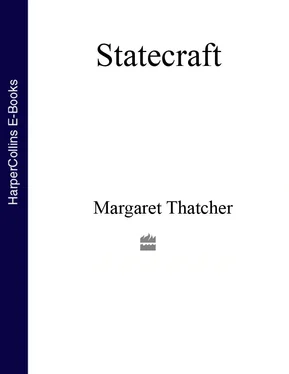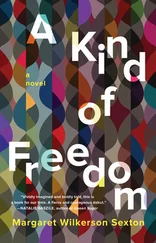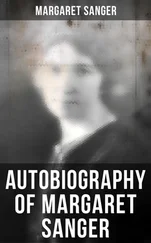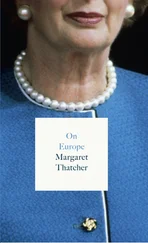Since then a clearer, though far from unambiguous, picture of Mr Putin’s presidency has been emerging. Its central approach is to create a strong state so as to restore order. For all its ominous overtones, that is what Mr Putin means by his oft-repeated phrase a ‘dictatorship of law’. His view, like that of probably most Russians, is that the Gorbachev and Yeltsin years saw authority drained away from central institutions to the benefit of different selfish interests, such as financial oligarchs, the mafia and regional bosses. In the chaos and corruption that have followed, the Russian people have lost out and Russia itself has been humiliated. Thus populism and patriotism have provided the main themes of Mr Putin’s campaigns. And he has been remarkably successful, winning a mandate of 53 per cent of the electorate and continuing – as of now – to enjoy widespread support.
In some respects, that is a programme with much to recommend it. Freedom without order is, indeed, mere anarchy. While Russia’s society, economy and politics are heavily criminalised there is no prospect for lasting recovery. Government everywhere does need to be strong in carrying out its essential tasks, and particularly so when the obstacles are as formidable as in Russia.
But government in a free society must also be limited in size and scope; it must not intrude into those aspects of life which are by rights private; and, above all, it must uphold and abide by, not undermine or override, the law. The call for ‘strong’ measures and ‘strong’ men is often an all too well-known preliminary to some kind of dictatorship.
How does Mr Putin’s programme measure up to this? Perhaps the most obvious feature of his analysis is its realism. He does seem to understand that Russia is in dire straits and that more of the same – whether the ‘same’ is communism or mafia-controlled quasi-capitalism – is not a viable option. In his State of the Nation Address to the Russian Federal Assembly in July 2000 he spoke in sombre tones about the country’s parlous state – its demographic decline which (he said) ‘threatened the nation’s survival’, the fact that the recent spurt of economic growth was unsustainable while structures were unreformed, and that ‘a considerable segment’ of that economy was in the hands of the criminal underworld. Mr Putin set out a programme of free-market reforms in language which sounds convincing – calling for lower taxes, less government interference and more competition. And some of this programme has since been implemented. The President has surrounded himself with at least some people who genuinely understand and believe in that programme. *Above all, he appears to have grasped that reform programmes are not simply a means of extorting fresh loans from gullible Westerners. He sees policies for economic revival as vital to prevent Russia being for ever under the thumb of non-Russians. This too makes sense. National pride has to be mobilised behind tough economic measures if they are to be given time to work – as we showed in Britain in the early eighties.
I sympathise too with the Russian President’s desire to create efficient administrative and security structures. Russia is a huge country which is not easy to rule. It is probably necessary to reinforce central control in some areas in order to stamp out corruption. My Russian friends talk of the need to ‘nationalise’ the Kremlin once more after years during which it was ‘privatised’ to the benefit of various powerful interests. And it is only natural that when embarking upon such a programme one should want to rely on ‘new men’ chosen from among one’s own friends and confidants. That is how politics works – particularly in the political jungle.
But, with all that said, I can also understand the worries of those – at present, it seems, a small minority – in Russia who are genuinely worried by some of Mr Putin’s decisions – such as, to clip the wings of elected regional governors, to appoint his own associates with FSB backgrounds to key positions, and to clamp down on critical independent media. Are we seeing the restoration of authority or the beginnings of authoritarianism? The jury is still out.
What matters most to non-Russians, however, is President Putin’s approach to foreign relations. And again the signs are mixed. In some respects, Russia’s attitudes have suggested continuity with those of the old Soviet Union.
Russia has shown itself determined to counter American global pre-eminence. To this end, it has sought to use the issue of ballistic missile defence and adherence to the ABM treaty to split Europe from America – with, it should be added, a good deal of help from the French and German governments. Russia has also been trying to build a broad ‘strategic partnership’ with China against the West.
In truth, these features of Russian foreign policy have never made any long-term sense, even for Russia. Mr Putin and his advisers must know that neither Moscow nor Beijing – nor even a combination of the two – can hope to compete in great-power politics with America. He must know that he will continue to need America’s help, or at least forbearance, as he tries to restore his country’s economy. He might also reflect that Russia could have to call upon the United States to use its planned ballistic missile defence system to bring down a missile aimed by an Islamic terrorist group or a rogue state at a Russian city.
Russia’s plans to create a strategic partnership with China to combat American influence are also flawed. Some 300,000 Chinese now live in the Russian Far East (if migration continues at the current rate, that population could reach ten million in fifty years’ time). Seven and a half million Russians face three hundred million Chinese across the border. Someone will eventually develop and exploit the natural riches of Russia’s Far East: but will it be the Russians, or the Chinese? It would be more sensible to settle, once and for all, Russia’s old territorial disputes with Japan, and then welcome in Japanese capital. That is certainly a more prudent course than accepting the region’s economic dependency on China. *
There is, however, another side to Mr Putin’s policies – one which has dominated Western perceptions of Russia in the wake of the terrorist attacks of 11 September. The Russian President’s reaction to these events was at once humane and shrewd. There is no reason to believe that his expressions of sympathy and his close rapport with President Bush in America’s time of trial were anything other than sincere. But it is equally important to note that Russia has its own strong reasons for wanting the United States to adopt as its dominant goal over the next few years prosecution of the war against terrorism. Russian influence in Central Asia and the Caucasus and its hold on Chechnya will all be boosted by what has occurred. To be able to portray its opponents as Islamist extremists and terrorists is a propaganda weapon which Russia will be keen to seize.
Russia will also hope to gain other advantages. It may hope to extract larger concessions for eventually acquiescing in US missile defence plans. It will almost certainly expect more economic aid. It may demand early entry into the WTO.
Yet perhaps the thorniest issue will turn out to be Russia’s relationship with NATO. As a clear-sighted pragmatist, Mr Putin will have noted that NATO is now as near a world policeman as exists, and that no other candidate can replace it. Hitherto, in large part as a result of lingering Cold War attitudes, Russia has sought whenever possible to prevent NATO’s expansion, particularly since that expansion brings it ever closer to Russia’s own borders. But from remarks he himself has made and from other signs emanating from Moscow, it seems increasingly likely that President Putin would like to see Russia itself as a NATO member.
Читать дальше












